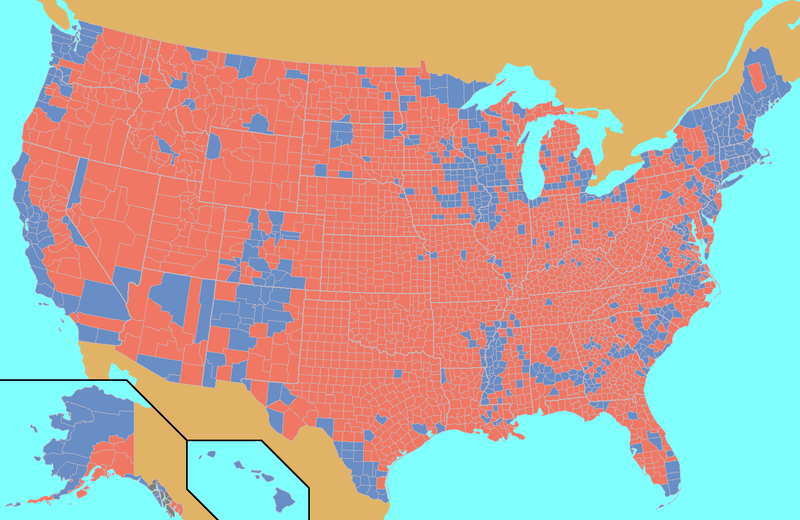What a stupid comment to make and then leave out the margin of victory. The margin of victory in the popular vote was almost exactly the same as it was in 2004 ... when Bush and the Republicans declared that they had a mandate. Obama's electoral college win was significantly bigger than Bush's, edging him by almost 50 EVs.
I didn't agree with the notion of a "mandate" in 2004 either, but lets look honestly at this...ESPECIALLY since you started this thread relating the other houses to part of a determination of a mandate or not.
Comparing 2004 to 2012 in a variety of factors (assuming Florida is for Obama here). Bold is who I'd view as the winner in each category.
Flat Factors 04 to 12
Electoral Bodies Won ---> B 31 / O 27 =
Bush +4
Electoral Votes Won ---> B 286 / O 332 =
Obama +46
Popular Vote Margin ---> B 2.5% / O 2.5% =
Even
Total Votes ---> B 62,040,610 / O 61,112,143 =
Bush +925,467
Improvement Factors from their first election to second
Electoral Bodies Change --> B +1 / O -2 =
Bush
Electoral Vote Change ---> B +15 / O -32 =
Bush
Popular Margin Change ---> B +2.96% / O -4.7% =
Bush
Total Vote Change ---> B +11,584,608 / O -8,344,754 =
Bush
Other Bodies of Government Factors
Senate Control ---> B Party / O Party =
Tie
Senate Gains ---> B +4 / O +2 =
Bush +2
House Control ---> B Party / O Opposition =
Bush
House Gains ---> B +3 / O TBD =
TBD
My ultimate conclusion...NEITHER particularly had a "Mandate" in their second election.
Bush
CLEARLY was more successful in terms of gaining favor of the American People electorally by his second term than Obama was. However, Bush first election was far worse results than Obama's first one, so he had less distance to go to make significant improvement. His party was more successful, in terms of a "mandate" for the PARTIES message, by winning all three major bodies and gaining in both of the Congressional chambers.
Obama was
CLEARLY more successful his second go round in terms of the factor that actually decides elections, the electoral college, then Bush's second. However, Bush captured more states of the country than Obama during their respective second terms AND Bush managed to get move outright votes for him than there was votes for Obama.
I don't think Bush in 2004 had a "mandate", though I think the Republicans had a better argument to leverage their political capital better than the Democrats have this go round...but nothing close to a mandate. I
DEFINITELY don't think Obama or the Democrats have a "Mandate" this time out, and I think they have significantly LESS electoral leverage this time than they had in 2008.
I would say that you'd at least have an argument perhaps for a "mandate" in 2008. It was the most votes for a President in the countries history by around 7 million, had him winning more than 2/3rds of all the electoral votes, and had the highest popular vote percentage in 20 years. On top of that you had significant democratic gains and control in both chambers of congress. You could at least make a reasonable, if still not clear cut, argument in 2008 for a "mandate". I think you're really hard up to do that this time...ESPECIALLY considering many democrats scoffed at the notion that Bush's 2004 election was a "mandate".


